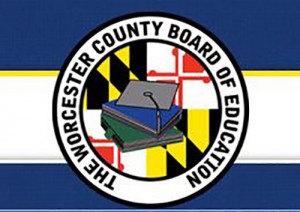
OCEAN CITY – The dull roar of a janitor’s floor buffer echoed through the halls of Stephen Decatur High School on Wednesday night as longtime county English teacher Maureen Brittingham taught a diverse group of adult students how to properly fill out a resume.
“Read the passage and circle any of the words you don’t know,” she instructed, pointing to a mock resume illuminated on a pull down screen by an overhead projector, “and tell me if you think Elena will get this job?”
Brittingham scanned the room, as the students’ attention rapidly ping-ponged from the projector to their own notes.
Jose, a 55-year-old mason worker from Mexico who has lived in this area for 14 years, raised his hand and replied, “No, if I were the boss, I would say she needed more experience.”
“You drive a hard bargain, Jose”, said Brittingham, “let’s look a little closer at the form. This line says she has lots of experience. But what Elena doesn’t have listed is her references. Can anyone tell me what references are?”
Different Classes For Different Needs
This is one of the many adult learning classes offered by Worcester County Public Schools.
There are 132 students in 18 classes throughout the county, which, for the most part, meet twice a week, and help a wide array of skill levels and motivations for adult students. There are adult education classes focused on basic and secondary levels of reading and math and programs designed to help students who are learning English as a second language (ESOL). In addition, there are also programs targeted toward getting students ready to take the GED test.
“Some of these students are in their late teens and early 20s and are trying to earn their GED after dropping out at some point in the past, while others are much older, coming from all over the world and are taking these classes to become more proficient in the English language and learn skills that will help them get better jobs,” said Angela Paris, the program’s coordinator.
While Maryland’s high school dropout rate has been steadily declining in recent years (8.35% in 2014 vs. 11.93% in 2010, according to the state’s Department of Education), the number of students, both young and old, who are classified as ELL (English Language Learners) continues to rise. That said, graduation rates among minorities and lower income level students have risen substantially in recent years, and those numbers have helped Maryland reach a four-year-cohort graduation rate of 86%, which is a record.
In Brittingham’s class alone, there are students from Korea, Pakistan, Laos, Romania and Mexico. The vast majority of them have come to the region to work in the poultry industry.
“For these students, trying to listen, read and respond in English is very difficult,” said Brittingham. “In just the six weeks I’ve been here, they have come so far because at the beginning they were too scared to communicate with me, but now, with just a little bit of education, they have built up so much confidence and that fear is starting to go away.”
Brittingham has taught for 23 years, and this is the first time she has taught adults.
“They are so eager to learn,” she said. “Some of the challenges with some younger students is they don’t want what you are selling, but for every one of these adult students, they are dying to learn as much and as quickly as they can.”
Paris explained that students usually seek out the program, which is offered free of charge and funded by seven grants. Paris said, “99.9% of the students have heard about the classes through word of mouth. At the beginning, they are tested to determine their reading and math levels for placement, and then they are post-tested to measure their achievements.”
Starting Over When Everything Is Different
Sakura, a Mexican mother of six, has watched as all of her children have gone through the local school system. She was inspired to improve her own English, at first, to help her own kids do their homework. Now, she hopes to pass the GED sometime soon in hopes to further her own career.
“People don’t understand how hard it is when you don’t know what anyone is saying at the store, or the doctor, or at work. So, I’m working hard to learn,” she said.
A few desks away, Lana McTavish, Sakura’s teacher, helps a small group of Hispanic adults with math factors and divisibility.
“One of the biggest challenges in teaching these classes is that everyone starts at a different point,” said McTavish, “but we have to try and get everyone to the same end point. People have to remember that speaking a language and learning how to learn in a language are two totally different things.”
Paris says while success may look a little different for each student based on personal motivations for entering the program, the task to get a GED is actually much harder now based on new college readiness standards.
